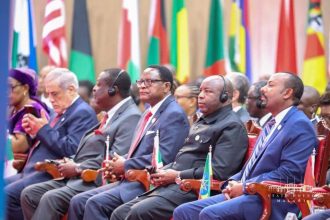Analysts tip govt on job-creation
Economic analysts have urged government to prioritise job-creation, as opposed to labour exports, to create a pathway for long-term sustainable growth.
The advice follows recommendations from the International Monetary Fund (IMF) to prioritise the allocation of capital and labour to firms and industries that have a higher return on investments.

The fund based its recommendations on a study published in the April 2024 edition of the World Economic Outlook.
It also coincides with a government’s initiative to export labour to mitigate unemployment in the local market and boost the country’s forex reserves through remittances from the employees under the initiative.
However, Catholic University of Malawi economics lecturer Greenson Nyirenda acknowledged that the labour exports were an option to use idle labour but stressed that government should focus on exporting highly-trained labour to “maximise returns”.
In a WhatsApp response, Nyirenda said: “However, the most efficient way to improve productivity is training and improving capital labour ratio. Otherwise, we can end up with highly-trained labour without physical capital to work with.”
The development comes at a time Malawi is negotiating with the Government of Israel to export labour to that country to do farm work. Israel has experienced a severe shortage of farm labour following the withdrawal of labourers from Thailand in the aftermath of the Israel-Palestine conflict.
A few weeks ago, a group of young unemployed people marched to the office of the District Commissioner in Lilongwe to implore government to expedite negotiations with Tel Aviv to pave the way for them to travel to Israel.
In a separate interview, economic analyst Derrick Thommo said government would be better served by creating more opportunities for Malawians to work here.
He said: “Exporting labour to Israel may offer short-term gains, but for sustained productivity and economic growth in Malawi, focusing on domestic job-creation, skill development, and investment in sectors with comparative advantages is more efficient in the long run.”
On its part, the fund urged policymakers to implement policies that aim at improving allocative efficiency and labour participation and facilitate cross-border trade and knowledge exchange.
Reads part of the IMF’s World Economic Outlook: “These policies and reforms should also enhance innovation capabilities and maximise the capacity to benefit from technological advances such as AI [Artificial Intelligence].”





